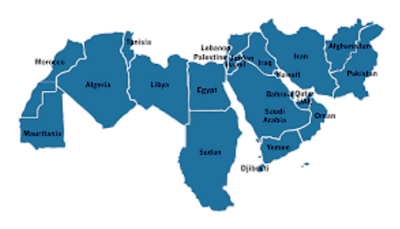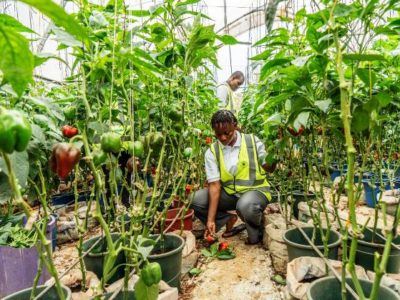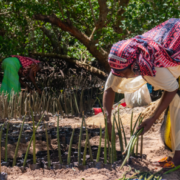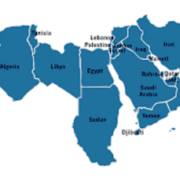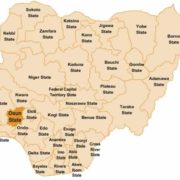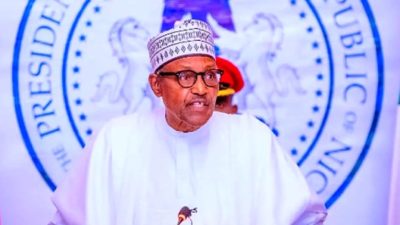By Samuel Zalanga
By August 19th, 2013, I am exactly twenty years in the United States and the state of Minnesota, having arrived here on August 19th, 1993, with only one luggage, and my passport to begin my graduate studies at the University of Minnesota, Department of Sociology. I did not know anyone in the country. It has been a long journey for someone who grew up in a small village in a rural community in Northeastern Nigeria. Twenty years is good time for me to reflect about my life as an immigrant in the United States. These twenty years will remain as the ones that have had the most profound impact on my life as a person even if I were to leave the United States today or die. Below are some quick reflections about my time and life in the country:

Trapped in the cold! Many Americans now do not feel confident their children will have a better life than them
1. From my perspective as the son of a peasant farmer in Nigeria, the scholarship I got to pursue my doctoral studies was a great opportunity for growth and to discover and nurture my potentials as a human being. I relish birthing and showering in the American metropolis of ideas. I however recognize the social mortgage on my education. This realization has inspired my commitment to creating a more just and fairer world.
2. Although the United States has given me great opportunity to grow and experience social mobility, in the twenty years that I have been here, the degree of social inequality has widened in the country. Furthermore, the country has become less a model of social mobility (as it used to be) compared to other European countries according to consensus in social science research studies. I know this is not nice to say, but it is the consensus. Many Americans now do not feel confident their children will have a better life than them.
3. In the past twenty years, the country has become more politically and socially polarized and the quality of leadership and statesmanship seriously diminished as politicians talk pass each other, while the nation’s problems continue to worsen and the ordinary citizens suffer. Bi-partisanship has declined. This has affected the progress of the country and will continue to do so, unless there is genuine change.
4. During the past twenty years, there has been phenomenal technological innovation, broadly conceptualized; but contrary to some naive expectations, the evidence strongly suggests that there are certain social problems in the United States that can never be solved by mere technological innovation. Indeed, technological innovation may even worsen some of the problems as it helps in polarizing people socially and economically. Only genuine and sincere effort at reconciliation and willingness to sacrifice for our common humanity and the common good can move the country forward in some areas of social concern.
5. The value of human, social, and cultural capital has become highly elevated in the past twenty years. Those with high and desirable human, social and cultural capital have captured most of the prosperity that the country has experienced in the past two decades. Those with little or no relevant human, social or cultural capital are virtually treated as irrelevant by the system i.e., a kind of “surplus population.”
6. While the United States continues to struggle with racial, gender and other forms of discrimination, increasingly, the problem of the country is NOT de jure discrimination but de facto discrimination. In effect, discrimination and social exclusion that used to be carried out by law is now effectively executed through the systemic nature of the normal operation of competitive consumer capitalism. This is more difficult to change and the struggle to change it will be different from the type against direct dominative racism of the middle of the 20th century.
7. Religion continues to be dynamic in the United States, but the fear of God has no relevance in terms of the fundamental principles that guide decisions that inform the operation of Wall Street. Wall Street is now the center of power and influence, and not religious leaders and churches. The media call the leaders of Wall Street “Masters of the Universe.” Moreover, market rationality is penetrating hitherto private spheres of human interaction at alarming pace, including the transformation of human aspirations, consciousness and the body, which are all spheres of human existence that religion wants to transform too, in order to glorify God.
8. From what I have seen in the past twenty years, religious people and leaders who just focus on claiming they have the truth and engage in distant pontification, will make little impact on the culture because knowledge of the truth or knowing the right thing to do has never been lacking in Christianity. Rather it is the weakness of religious people to embrace the idea that for the truth to transform society, the people have to sacrifice something, but often we are enslaved by consumerist culture, which is built around the pursuit of self-interest. As one scholar argues, to grow, we have to die of something. “Homo economicus” is the model of humankind we use as building blocks for our social institutions and our society. Many religious leaders underestimate the power of social and material interest in shaping their understanding of the truth and how they perceive God; and how that in turn shapes their position on many social issues and public affairs.
9. My growth and development in American society has been made possible by the support, goodwill and generosity of many people in the United States such as in the church, my mentor at the University of Minnesota, Professor Ronald Aminzade; my colleagues in my department and others in Bethel University at large (too numerous to mention); and my students who have challenged and affirmed me in different ways.
10. While I feel that the sun is just rising for my scholarship and intellectual reflection, I am beginning to acutely feel the pain of the human condition in Africa in general and Nigeria, my country of birth, in particular. As the son of a poor peasant farmer, it is a great opportunity and blessing from God to get a MacArthur Scholars’ Fellowship to study freely at the University of Minnesota and to grow professionally at Bethel University where I work. Privately, it is nice to work in the U.S., but from the point of view of contribution to humanity, the need in Africa is acute and urgent compared to the U.S. The great question now is how can one share the rich knowledge and experience acquired in the U.S. through the generosity of many people, with people in Africa, who definitely need help? This is a crossroad.
Zalanga is a Professor of Sociology, Department of Anthropology, Sociology & Reconciliation Studies; Bethel University, 3900 Bethel Drive #24 Saint Paul, Minnesota, 55112,United States of America.


